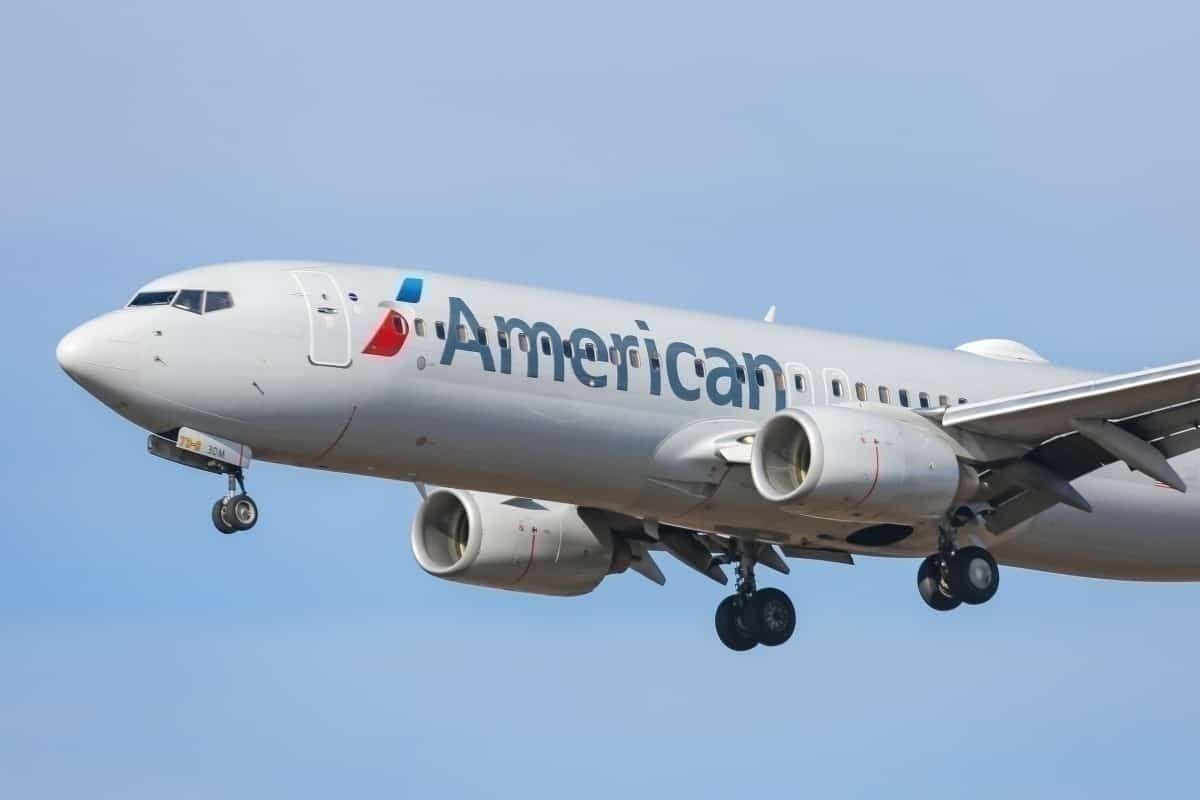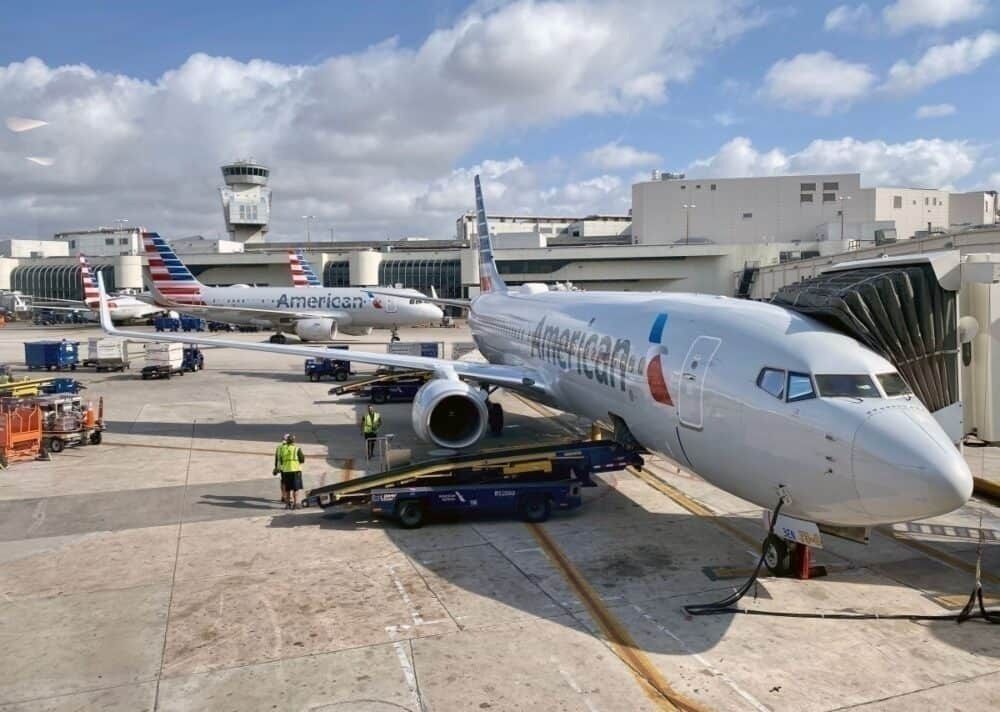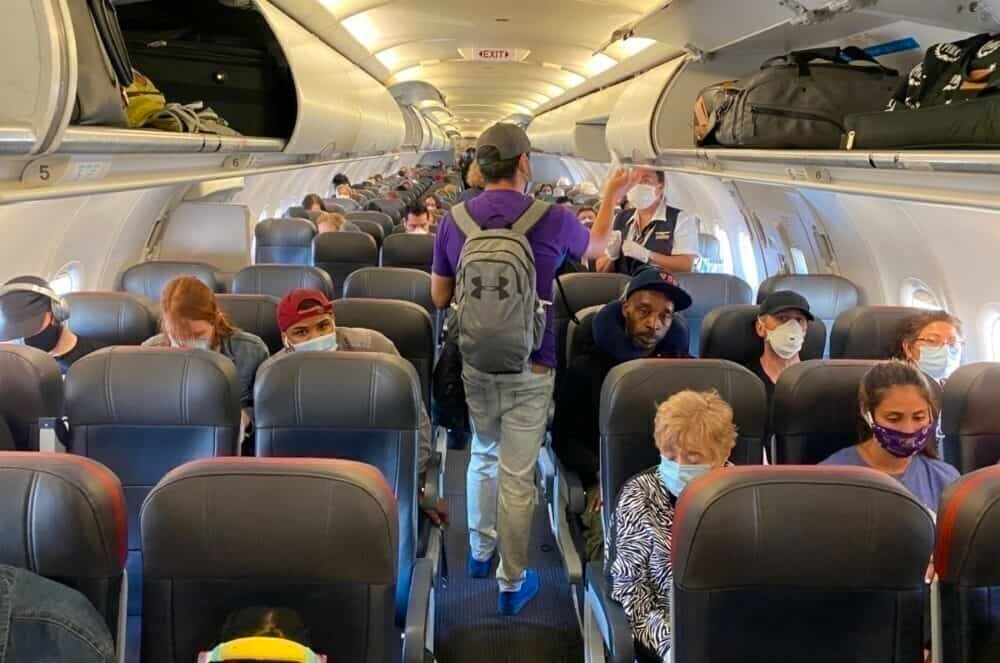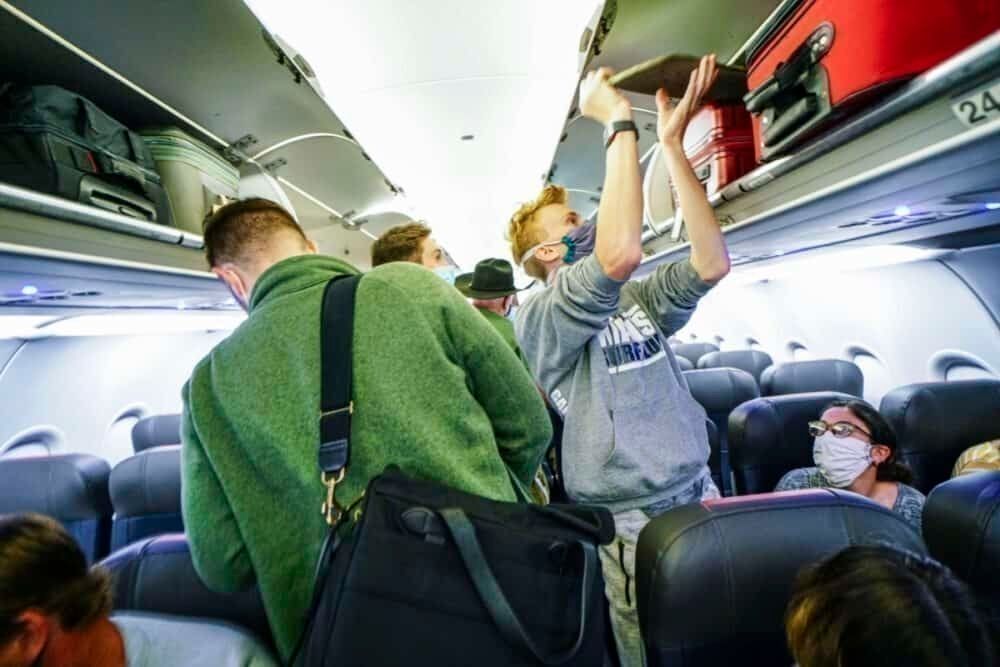American Airlines has strengthened its onboard face covering policy. Starting from July 29th, the carrier will not allow any exemptions for passengers over the age of two. Even for passengers who have documented medical exemptions, they must wear a mask while traveling with American onboard and on the ground or else they will not be allowed to fly.
A strengthened mask policy
The airline announced the updated policy as COVID-19 cases surge across the United States. With an increased focus on the asymptomatic transmission of COVID-19, the carrier is following guidance from the Centers for Disease Control (CDC) and countless public health experts in mandating masks across the board. American Airlines, which is flying more passengers than it was two months ago each day and filling up more flights, is making this move as part of its commitment to keeping its passengers and crew safe onboard aircraft.
Stay informed: Sign up for our daily aviation news digest.
Alison Taylor, Chief Customer Officer of American Airlines, stated the following:
"According to the Centers for Disease Control and Prevention one of the best ways we can slow the spread of COVID-19 is to wear a face covering. Customers and team members have been clear that they feel more safe when everyone is wearing a face covering. In light of this important feedback, we are expanding and enhancing our requirements onboard and at airports."
A spokesperson for American Airlines also added the following to Simple Flying:
"Only customers under 2 years old will be exempt from the new face covering policy. No other exemptions will be granted, even for those with verifiable medical conditions, due to the safety risk of asymptomatic COVID-19 transmission by customers without face coverings. If a customer cannot wear a face covering, they will not be able to travel on American."
The evolution of mask mandates on airlines
Masks have been mandated on major US airlines since late April/early May when travel demand really started to recover. Since then, there has been plenty of concern about enforcement. With the lack of a clear government mandate, airlines had a little haphazard approach to enforcing requirements.
Soon enough, airlines banded together and instituted stricter mask policies. This would see customers lose travel privileges for as long as airlines mandate masks. Even then, the medical exemption proved to be a loophole, as this journalist discovered on a recent Southwest flight.
Delta Air Lines made a move toward cracking down on fake exemptions for masks. The Atlanta-based carrier now requires passengers to have a visit with a medical professional about their mask exemption before being cleared to fly. American chose to go even further by barring exemptions across the board.
Airlines need to take a stand to ensure that flying is safe. While blocking the middle seat unviable economically long-term for airlines like American, the carrier’s move is one that will keep more of its passengers safe. The move comes after a high-profile figure was seen maskless onboard an American-marketed flight.
The right move forward
It is good to see airlines start to crack down and limit false mask exemptions. Few countries around the world have politicized mask-wearing as much as the United States. And, amid a surging coronavirus pandemic, controlling the virus and ensuring safer flights for all is a must to keep the air travel industry afloat.
The science is clear: masks can do a lot to prevent the spread of respiratory illness. No major health agency has indicated that masks are the end-all, cure-all, “kryptonite,” or magic wand to get rid of COVID-19. Still, they are a big part of preventing viral illness– especially on airlines where social distancing is not possible. That is why, even on carriers like JetBlue and Delta, where middle seats are going out empty, masks are still a requirement.
Instead, masks should be thought of like a seatbelt. Though wearing a seatbelt does not guarantee that you will be safe in the event of an incident, it does reduce the potential for injuries. While masks do not guarantee that COVID-19 transmission will not occur, it does reduce the likelihood of transmission without significantly impacting a person’s oxygen saturation.




